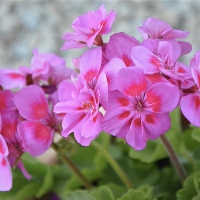The cello is a typical representative of western musical instruments. It serves as a sub baritone or bass instrument in an orchestra. The cello has four strings, rich and full timbre, and is good at playing lyrical melodies. The famous cello music includes "Unaccompanied Cello Suite", "Cello Concerto", "Greetings of Love", etc.
The four notes of cello tuning
The interval difference between each string of the cello is pure five degrees, and the four strings from thick to thin (from low to high) are C, G, D, A, that is, do, sol, re, la. The A-string of the cello is gorgeous and powerful, and full of singing; Two string D string timbre is hazy; 3、 The four strings (G, C) are deep and loud, and can withstand the very heavy sound of the band.
Cello music is usually written on a bass scale, sometimes on a alto scale and sometimes on a treble scale. Its pronunciation principle is the same as that of the middle violin and the violin. The handle of its finger is completely different from that of the violin in the low voice area. It can play with the thumb in the high voice area. It has a support "tail needle" on the floor to support the weight of the instrument.
What are the strings of cello 1 to 4
The four strings are E, A, D and G. In order to avoid excessive wiring on the bass spectrum, the sound is one octave lower than the actual recording.
Sometimes the fifth string is added to set the sound to C, or a mechanical device is added to the neck of the instrument to lengthen the E string so that it can play the following C sound. A skilled performer can use overtones to greatly surpass the natural range above the instrument.
The double bass uses two kinds of bows, one is the French bow, called the Botesini bow. The other is called German or Western Mandelian bow. It has a long, thin rod and a wide clasp. Hold the lower part of the rod with your hand (palm up).
The double bass is played more by plucking than other bowstring instruments, which makes it an important rhythmic instrument in song and dance bands and jazz bands as well as in orchestras.
Difference between cello and double bass
Cello and double bass differ in range, size, process and timbre.
1. Range: The range of the cello is wider than that of the double bass, and the range of the cello is higher than that of the double bass. The range from bass to treble can accommodate four octaves, while the range of the double bass can only accommodate three octaves.
2. Size: The size of the cello is larger than that of the double bass. The cello is 1.8 meters long, while the double bass is only about 1.2 meters long.
3. Tone: The sound of the cello is warmer and richer than that of the double bass, while the sound of the double bass is heavier, deeper and deeper.
4. Process: The production process of cello and double bass is also different. The wood of cello is excellent, and the selection of backboard wood is particular, while that of double bass is not.

